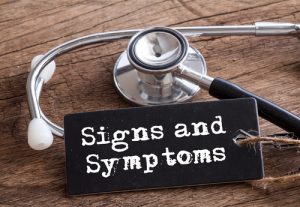Traumatic Brain Injury Part II: Symptoms

NPUSA nurses have reviewed a number of cases involving traumatic brain injury (TBI) in recent months. TBI is a complex subject and the diagnostic process is often complicated. Plaintiff and defense attorneys alike will find it helpful to review some facts.
The following is Part II in our series on Traumatic Brain Injury and Litigation. Last month, we discussed brain anatomy and function. This month, we review the specific signs and symptoms of brain injury.

Traumatic Brain Injuries (TBIs) can result in focal damage to a specific area of the brain (e.g., gunshot wound) or be more diffuse in nature (e.g., diffuse axonal injury). The symptoms can vary depending on the site of lesion and the extent of damage to the brain. In some situations, symptoms may appear immediately after the injury. In other cases, symptoms may develop over time after the initial injury as anatomical changes occur in the damaged brain tissue.
When nerve cells in the brain are damaged, they can no longer send information to each other in the normal way that directs physical, mental and emotional actions and reactions. Therefore, signs and symptoms of a traumatic brain injury can be physical and/or mental and emotional. They can also be subtle or quite obvious.
Physical symptoms may include:

- a loss of consciousness
- convulsions or seizures
- excessive sleepiness or conversely difficulty falling asleep
- slurred speech
- weakness and loss of balance
- coordination problems
- headache
- dizziness
- blurred vision
- sensory abnormalities (such as a bad taste in the mouth or a loss of smell or taste)
- oversensitivity to light (photophobia)
- fatigue
- nausea/vomiting

Emotional and mental symptoms of TBI can include:
- Excessive frustration
- Irritability and agitation
- Combativeness, problems with impulse control
- Anxiety
- Depression
- Forgetfulness
- Mood swings
- Difficulty making decisions
- Slowness in thinking or reading
- Unusual behaviors and personality changes
- Cognitive and communication problems
- Post-traumatic stress disorder (PTSD)
- Dementia in severe cases (Post Traumatic Dementia or PTD)